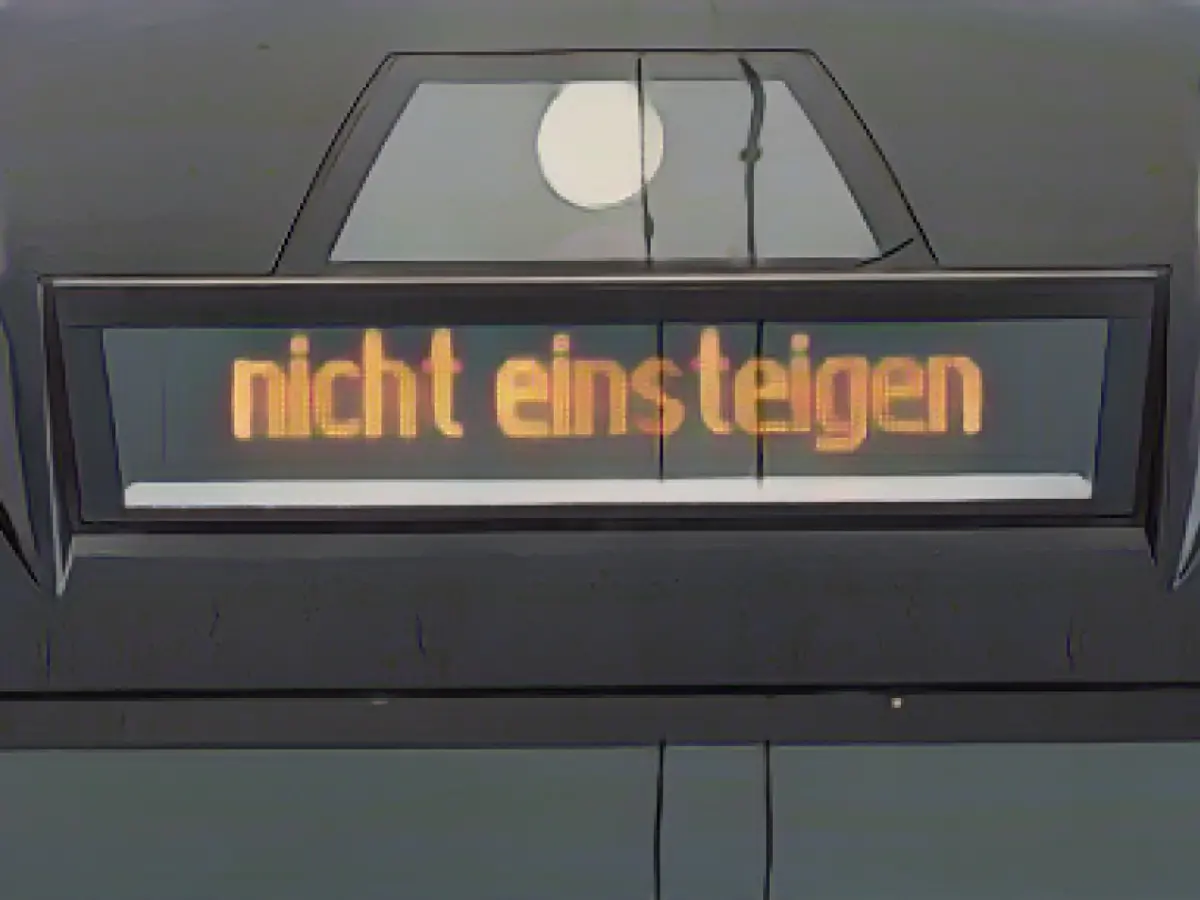Traffic chaos - Deutsche Bahn paralyzed: Second GDL warning strike paralyzes large parts of rail traffic
A 24-hour warning strike on long-distance and regional services will once again bring far-reaching restrictions for passengers this Friday. The latest strike by the German Train Drivers' Union (GDL) began on Thursday evening at 6 p.m. on rail freight services. Four hours later, the union extended the industrial action to passenger trains.
Hours before the start of the warning strike, Deutsche Bahn had already removed numerous connections from the program. This meant that passengers were not threatened with night-time stops on open routes. In addition, the trains will be right where they are needed at the start of operations after the end of the industrial action.
As with the previous warning strike in the current round of collective bargaining, Deutsche Bahn expects to be able to run around one in five long-distance trains. On the other hand, hardly any trains are likely to run on regional services, especially in southern Germany. Deutsche Bahn is still struggling with the effects of the snow chaos of the past few days, particularly in Bavaria.
Dispute mainly over working time demands
In addition to Deutsche Bahn, its competitor Transdev is also on strike by the GDL. This affects the Nordwestbahn and the Rhein-Ruhr-Bahn of the group in North Rhine-Westphalia. Transdev employees in Hanover and Central Germany were also called out on warning strike.
The GDL has since declared the wage negotiations at both companies to have failed. The main sticking point in both cases is the GDL's demand for a reduction in weekly working hours for shift workers from 38 to 35 hours with full pay compensation. The employers have so far rejected this.
GDL boss Weselsky told the Düsseldorfer "Rheinische Post" (Friday): "As sorry as I am for the customers, we currently have no other choice." Customers should complain to Deutsche Bahn, not the union.
DB fears backlog of more than 300 freight trains
The warning strike comes at a particularly bad time for freight traffic. Due to the weather conditions in Bavaria, a large backlog had already formed in the past few days. "At the start of the strike, 170 DB Cargo freight trains were waiting to continue their journey, and now more trains are being parked. It is to be feared that this number will double," said a railroad spokesperson. It cannot be ruled out that the warning strike will also lead to production line stoppages in the industry. "Supply-relevant trains will be given priority to their destinations," said the spokesperson.
Deutsche Bahn criticized the GDL's industrial action as irresponsible overall. This Sunday, the company wants to change the timetable. Additional trains, long-distance and regional connections will then be added. The warning strike shortly before the timetable change is causing additional stress in the control centers.
The German Association of Towns and Municipalities criticized that the warning strike had been announced at far too short notice. Citizens and local authorities had practically no time to adapt, said chief executive Gerd Landsberg to the newspaper "Bild" (Friday). The GDL is harming millions of people and the climate.
Christmas truce up to and including January 7
Passengers can breathe a sigh of relief after the warning strike. GDL boss Weselsky has ruled out further industrial action up to and including January 7. After that, anything is possible again. The strikes in the new year will be "longer and more intense", Weselsky said on Bayerischer Rundfunk radio on Thursday. The result of the ballot on indefinite strikes is also expected to be available by then. If 75 percent of those taking part in the ballot vote in favor, the GDL can call for significantly longer, even days-long industrial action.
In addition to great annoyance among passengers, problems for the economy could also be expected in such a case. According to DB, DB Cargo supplies German power plants with around 50 trains full of hard coal every week. Delays in delivery would lead to problems in the supply of fuel. Steelworks are also dependent on deliveries by train: If there is no supply for two to three days, blast furnaces may have to be shut down.
Read also:
- Accessibility on vacation: The most important tips - and best travel destinations
- The lame duck: Who is GDL boss Claus Weselsky?
- Delays and train cancellations: what rights passengers have in the event of a rail strike
- EU Commission wants to strengthen travel rights
The train drivers' union GDL extended their industrial action, causing the second warning strike this round, affecting passenger trains as well. This action followed the initial strike on rail freight services, leading to significant disruptions on Deutsche Bahn's long-distance and regional services.
The ongoing dispute mainly revolves around the GDL's demand for a reduction in weekly working hours for shift workers from 38 to 35 hours with full pay compensation, which Deutsche Bahn and its competitor Transdev have so far rejected.
Despite the warning strike, Deutsche Bahn plans to adjust its timetable after the strike period to add additional trains and long-distance connections, aiming to minimize disruptions afterwards.
Source: www.stern.de








